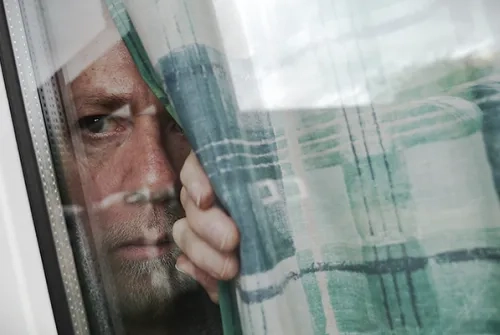Alo Yeditepe
Alo Yeditepe
What is Agoraphobia?
Agoraphobia is a type of anxiety disorder in which you fear places or situations that may make you panic, feel trapped, helpless, or embarrassed. You become afraid of using public transport, being in open or closed spaces, waiting in line, or being in a crowd. Anxiety results from the feeling that when the fear intensifies, there is no easy way to escape or seek help.
What are the Symptoms of Agoraphobia?
A person with agoraphobia may find it difficult to feel safe, especially in crowded public places. They may feel that he/she needs a companion, such as a relative or friend, to go to public places. The fear becomes so intense that they may even feel that they will never be able to leave the house.
A person's biology (including health conditions and genetics), temperament, environmental stress, and learning experience may all play a role in the development of agoraphobia. Agoraphobia may not be very easy to treat because it often means facing fears. However, a more enjoyable life can be lived by getting rid of agoraphobia with psychotherapy and medications.
Treatment of Agoraphobia
Treatment for agoraphobia usually includes both psychotherapy and medication. It may take some time, but treatment will aid recovery.
Psychotherapy involves reducing anxiety symptoms, setting goals, and working with a therapist to learn practical skills. Cognitive behavioral therapy is one of the most effective forms of psychotherapy for anxiety disorders, including agoraphobia.
Cognitive behavioral therapy, generally a short-term treatment, focuses on teaching specific skills to better tolerate anxiety, directly challenge worries, and gradually return to activities avoided due to anxiety. A physician may prescribe some antidepressants and antianxiety medications to treat agoraphobia.
This content was prepared by Yeditepe University Hospitals Medical Editorial Board.
”
See Also
- What is Autism Spectrum Disorder?
- What is an Antidepressant? What Does It Do? How Are Antidepressants Used?
- What is Mythomania (Pathological Lying Disorder)? What Causes Mythomania?
- What are the symptoms of a Panic Attack? How to Overcome a Panic Attack?
- What Does Narcissist Mean? Narcissistic Personality Disorder
- The Importance of Sexuality in Marriage
- What is Anxiety? What are the Symptoms of Anxiety?
- The Father-Child Relationship Reflects on Personality Traits
- Post-Traumatic Stress Disorder
- How Can We Manage Stress?
- Chronic Pelvic Pain
- Ways to Deal with Work Stress
- 9 Different Types of Depression
- Father's Role in Child Development is Fatal
- The Right Behaviors to Shape the Pandemic
- Ways to Survive Coronavirus Stress
- Developmental Disorders in Children
- Mental Health Starts in the Family
- Eco-Anxiety Can Cause Panic Attacks
Alo Yeditepe





